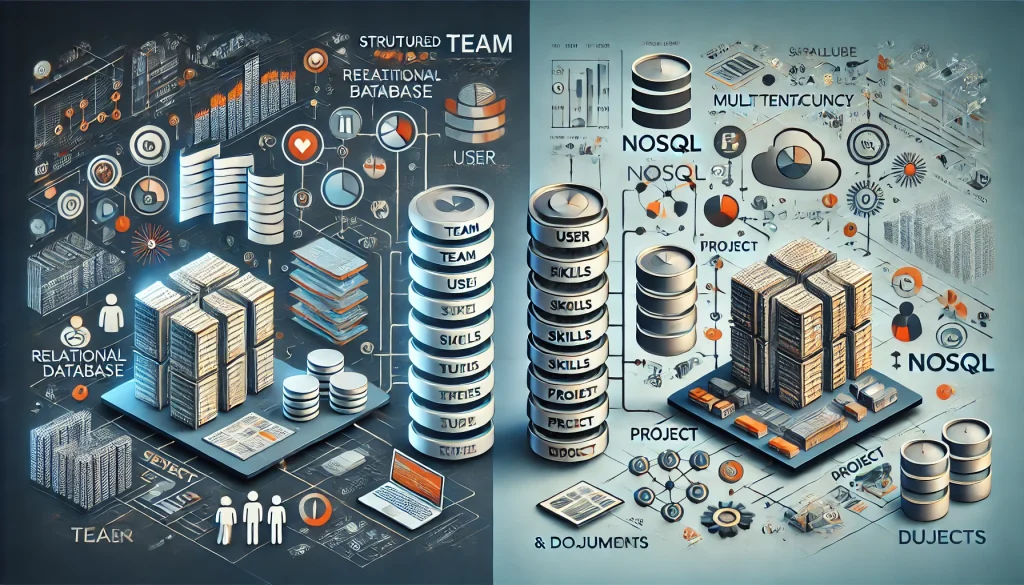
When deciding between a relational database and a NoSQL database, several factors come into play. The nature of your data, the type of queries you expect, scalability requirements, and your specific use cases are all critical considerations. Here’s a comprehensive comparison to help you make an informed decision:
Relational Databases
Pros:
- Structured Data: Relational databases are ideal for structured data, allowing you to enforce data integrity through schemas, constraints, and relationships.
- ACID Compliance: These databases ensure reliability and consistency through ACID (Atomicity, Consistency, Isolation, Durability) compliant transactions.
- Complex Queries: Relational databases excel at handling complex joins and aggregations with SQL, making them suitable for detailed analytical queries.
- Data Integrity: They ensure data integrity using foreign keys and constraints, maintaining robust relationships between tables.
- Mature Ecosystem: With a long history, relational databases come with established tools, languages, and a supportive community.
Cons:
- Scalability: Relational databases primarily scale vertically, which can become a limitation when dealing with very large datasets.
- Flexibility: They are less flexible in handling unstructured or semi-structured data compared to NoSQL databases.
NoSQL Databases
Pros:
- Scalability: NoSQL databases are designed for horizontal scaling, making them ideal for large-scale applications.
- Flexibility: They can handle unstructured, semi-structured, and structured data with ease, providing greater flexibility.
- Performance: Optimized for high-performance reads and writes, NoSQL databases are well-suited for applications requiring fast data access.
- Schema-less: NoSQL allows for rapid development and iteration without the need to worry about schema changes.
Cons:
- Consistency: NoSQL databases might sacrifice consistency for availability and partition tolerance (as per the CAP theorem), which may not suit all applications.
- Complex Queries: They have limited support for complex queries and aggregations compared to SQL.
- Data Integrity: NoSQL lacks built-in support for enforcing relationships and constraints, which can affect data integrity.
Considering Your Requirements
Given that you have a multitenant architecture and foresee the need for aggregations in the future, let’s break down your requirements:
Multitenancy
- Relational DB: You can implement multitenancy using separate schemas for each tenant or a single schema with a tenant identifier.
- NoSQL: Typically handles multitenancy with a partition key or similar mechanism.
Aggregations
- Relational DB: SQL databases excel at performing complex joins and aggregations, making them suitable for extensive analytical queries.
- NoSQL: While NoSQL databases can perform aggregations, it often requires more effort and may not be as efficient as SQL for complex queries.
Scalability
- Relational DB: Adequate for moderate scalability but might face limitations with extremely large datasets or high concurrency.
- NoSQL: Better suited for applications requiring massive scalability and a distributed architecture.
Recommendation
Start with Relational: Given your current needs involve structured data with potential for complex queries and aggregations, a relational database is a solid choice. It offers a robust foundation, especially if data integrity and complex querying are priorities.
Consider Future Needs: If you anticipate a significant increase in data volume or expect to deal with unstructured data or need higher scalability, consider hybrid approaches or migrate certain parts of your data to NoSQL as your application evolves.
Final Thoughts
To make a more informed decision, prototype key parts of your application with both types of databases. Measure performance, ease of development, and scalability to see which option best fits your long-term goals.
